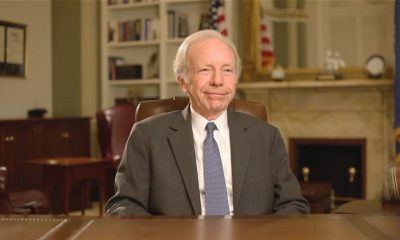National
Young, gay caucus-goers talk politics, support for GOP
Romney, Paul find support from some gay Iowans


Several young gay Iowa caucus goers discuss which GOP candidates they will support today. (Washington Blade photo by Chris Johnson)
DES MOINES, Iowa — For some gay Iowa Republicans, the 2012 presidential election is about more than just LGBT issues.
Economic issues and a belief in limited government are trumping concerns that the GOP presidential contenders are hostile to LGBT rights.
The Washington Blade interviewed five young gay Des Moines residents who will be among the estimated 120,000 Iowa Republican caucus-goers about why they support the GOP this year.
C.J. Petersen, 21, a customer service representative for Nationwide Insurance, is backing former Massachusetts Gov. Mitt Romney because of the candidate’s business background.
Petersen said he became interested in Romney as a high school senior in 2007 when he saw him speak during his last presidential run.
“I think, this year, he’s been a 100 percent better candidate,” Petersen said. “If you compare the YouTube videos from ’08 to now, he seems a lot less robotic and choppy and nervous. I think he seems a lot more relaxed, and almost presidential, ready to be a leader.”
Two other gay Iowa residents interviewed by the Blade said they’re backing Rep. Ron Paul (R-Texas) because of the candidate’s libertarian views.
Dereck Plagmann, 21, said he’s in the Paul camp because of the candidate’s adherence to the U.S. Constitution.
“I think it’s something that we’ve definitely drifted away from,” Plagmann said. “We need to get back to it basically. Other presidents, everybody’s trying to make changes to it. They’ve lost focus on what really made this country, and what made us who we are.”
Zach Coffin, 22, a collector for Wells Fargo bank, also plans to back Paul.
“I think that’s basically what this country needs right now is someone that will defend the core values and the core principles of the Constitution of the United States,” Coffin said. “That’s one thing that Ron Paul is focusing on well.”
MORE IN THE BLADE: ROMNEY, SANTORUM SHOW NEW STRENGTH IN IOWA POLLS
Two other gay caucus participants interviewed by the Blade had yet to make a decision on a candidate, but intend to support a Republican.
Bryan Pulda, 21, a processor for Wells Fargo Bank, said he still needs to research each of the GOP candidates.
“I come from a farming family, so it’s conservative or Catholic,” Pulda said. “Our personal views are more reflected in the Republican candidates.”
Although he hasn’t made a final choice, Pulda said he’s leaning toward backing Paul because he believes the candidate’s politics “are consistent” and he “hasn’t been in the news with anything controversial.”
Ryan Schrader, 22, who works at a local Casey’s gas station, was also undecided but said he’s leaning toward Paul.
“I come from a very conservative background myself,” Schrader said. “My family is very conservative Baptists. So his views are more towards letting the people, which would be all of us, make the decisions to shape our country.”
The candidates chosen by the five caucus-goers — Romney and Paul — have adopted some anti-gay positions, though they have not been as extreme in their views as other Republican contenders.
Paul supported the repeal of “Don’t Ask, Don’t Tell” and twice voted against a U.S. constitutional amendment banning same-sex marriage.
Romney backs such an amendment, but expressed doubts that there is enough momentum or interest to pass it. He’s also said he would leave open service in the military as it is.
MORE IN THE BLADE: ANTICIPATING THE WHIRLWIND YEAR AHEAD
Still, neither candidate has the track record or commitment that President Obama has demonstrated in advancing LGBT rights. But the gay Iowa caucus-goers say they’re backing a Republican candidate to address more mainstream issues affecting the country.
Coffin said social issues can motivate people because they’re easy to understand, but if voters take the time to learn about economic issues, they “usually wind up changing their mind and thinking about the big picture what’s really going on here.”
“I don’t know if it’s because I’ve always lived in Iowa, and Iowa is one of the states where you can be married,” Coffin said. “With the amount of rights that gay people have right now, I feel totally comfortable with what we have.”
While Iowa has achieved marriage equality, if a Republican administration succeeds in passing a Federal Marriage Amendment as many of the candidates have promised, the measure would abrogate the 2009 court ruling allowing gay couples to marry in the state.
Pulda similarly said issues like same-sex marriage are on the back burner in comparison to improving economic conditions in the country.
“I would find it almost selfish for me to go out and say, ‘I vote for this person simply because they want same-sex marriage,'” Pulda said. “There are so many more problems in this country affecting more people than just me.”
But there’s a limit to how much these caucus-goers are willing to look the other way. Candidates like former U.S. Sen. Rick Santorum, Texas Gov. Rick Perry or Rep. Michele Bachmann, who make anti-gay rhetoric a foundation of their campaigns, are turn-offs as potential candidates.
Petersen said he wouldn’t support a candidate who would make social issues a “central tenet of their campaign.
“I’m a Republican, but I’m not stupid,” Petersen said. “If they want to use those issues as a wedge to get voters to support them, I’m not really attracted to that.”
A recent anti-gay ad by Rick Perry that has been widely circulated on the Internet was a bridge too far for these caucus-goers. In the ad, Perry accuses Obama of engaging in a war on religion and says, “There’s something wrong in this country when gays can serve openly in the military, but our kids can’t openly celebrate Christmas or pray in school.”
Pulda said the ad made him think twice about Perry, but still isn’t ruling him out as a potential candidate to back during the caucuses.
“I liked Rick Perry, but the latest ad he put out — I think he used the wrong language,” Pulda said. “That wasn’t the ad to go out.”
Petersen took a dig at Obama, saying he’s been paying lip service to the LGBT community and that one of his major accomplishments — repeal of “Don’t Ask, Don’t Tell” — “just kind of came to him.”
“It was basically Senators [Susan Collins] and Joe Lieberman who said they were getting this done at the end of the year,” Petersen said. “What ended up happening is a great victory for us in the sense that LGBT Americans can now serve their country in uniform. That’s a great thing, but I don’t really credit that to President Obama.”
The administration was seen by some as playing a passive role in the legislative effort to repeal “Don’t Ask, Don’t Tell” before the Pentagon issued its report on implementing repeal. But after the Pentagon report came out, observers said the White House was active in engaging with senators to push through the legislation.
R. Clarke Cooper, executive director of Log Cabin Republicans, said support for the Republican Party among young voters will grow if the GOP steers clear of social issues.
“Younger conservative voters under 30 continue to increasingly poll disinterest over social issues and do not support perceived or real demonization of LGBT Americans,” Cooper said. “If social issues, however, remain a myopic priority for certain candidates, they will find as former [Republican National Committee] Chairman Haley Barbour stated in 2011, ‘Purity is the enemy of victory.'”
Peter Levine, director of Tufts University’s Center for Information and Research on Civic Learning and Engagement, said involvement of young gays in the Iowa caucuses is reflective of the political energy among youth throughout the country.
“I think it’s sort of characteristic of this generation,” Levine said. “Even though the turnout in the end may not be that high, for various reasons, I think there is a lot of energy and enthusiasm.”
It’s not the first time that Petersen and Plagmann have participated in the Iowa caucuses. Petersen backed Romney in 2008, while Plagmann participated in the Democratic caucus and backed Obama’s candidacy.
Plagmann said he might vote for Obama during the general election if the Republican nominee isn’t to his liking, although he’s changing his party affiliation during the Iowa caucuses because he’s disappointed in the administration.
“Back then it was my first election,” Plagmann said. “I was 18. I didn’t really look a whole lot into it. I guess I could relate to him more. But surely now, I don’t think he’s been as effective as what America had hoped.”
Whatever the election results, at least one of the caucus-goers says he’ll keep gay rights in mind as he continues advocating for a Republican agenda.
“I personally would like to see same-sex marriage legalized in all the states, but I don’t think we have to leave the Republican Party in order to stand for most of our principles,” Petersen said. “I’m not going to base my entire vote on one part of my life. I have a financial future as well as a romantic future.”
The White House
Four states to ignore new Title IX rules protecting transgender students
Biden administration last Friday released final regulations

BY ERIN REED | Last Friday, the Biden administration released its final Title IX rules, which include protections for LGBTQ students by clarifying that Title IX forbids discrimination based on sexual orientation and gender identity.
The rule change could have a significant impact as it would supersede bathroom bans and other discriminatory policies that have become increasingly common in Republican states within the U.S.
As of Thursday morning, however, officials in at least four states — Oklahoma, Louisiana, Florida, and South Carolina — have directed schools to ignore the regulations, potentially setting up a federal showdown that may ultimately end up in a protracted court battle in the lead-up to the 2024 elections.
Louisiana State Superintendent of Education Cade Brumley was the first to respond, decrying the fact that the new Title IX regulations could block teachers and other students from exercising what has been dubbed by some a “right to bully” transgender students by using their old names and pronouns intentionally.
Asserting that Title IX law does not protect trans and queer students, Brumley states that schools “should not alter policies or procedures at this time.” Critically, several courts have ruled that trans and queer students are protected by Title IX, including the 4th U.S. Circuit Court of Appeals in a recent case in West Virginia.
In South Carolina, Schools Supt. Ellen Weaver wrote in a letter that providing protections for trans and LGBTQ students under Title IX “would rescind 50 years of progress and equality of opportunity by putting girls and women at a disadvantage in the educational arena,” apparently leaving trans kids out of her definition of those who deserve progress and equality of opportunity.
She then directed schools to ignore the new directive while waiting for court challenges. While South Carolina does not have a bathroom ban or statewide “Don’t Say Gay or Trans” law, such bills continue to be proposed in the state.
Responding to the South Carolina letter, Chase Glenn of Alliance For Full Acceptance stated, “While Supt. Weaver may not personally support the rights of LGBTQ+ students, she has the responsibility as the top school leader in our state to ensure that all students have equal rights and protections, and a safe place to learn and be themselves. The flagrant disregard shown for the Title IX rule tells me that our superintendent unfortunately does not have the best interests of all students in mind.”
Florida Education Commissioner Manny Diaz also joined in instructing schools not to implement Title IX regulations. In a letter issued to area schools, Diaz stated that the new Title IX regulations were tantamount to “gaslighting the country into believing that biological sex no longer has any meaning.”
Governor Ron DeSantis approved of the letter and stated that Florida “will not comply.” Florida has notably been the site of some of the most viciously anti-queer and anti-trans legislation in recent history, including a “Don’t Say Gay or Trans” law that was used to force a trans female teacher to go by “Mr.”
State Education Supt. Ryan Walters of Oklahoma was the latest to echo similar sentiments. Walters has recently appointed the right-wing media figure Chaya Raichik of Libs of TikTok to an advisory role “to improve school safety,” and notably, Raichik has posed proudly with papers accusing her of instigating bomb threats with her incendiary posts about LGBTQ people in classrooms.
The Title IX policies have been universally applauded by large LGBTQ rights organizations in the U.S. Lambda Legal, a key figure in fighting anti-LGBTQ legislation nationwide, said that the regulations “clearly cover LGBTQ+ students, as well as survivors and pregnant and parenting students across race and gender identity.” The Human Rights Campaign also praised the rule, stating, “rule will be life-changing for so many LGBTQ+ youth and help ensure LGBTQ+ students can receive the same educational experience as their peers: Going to dances, safely using the restroom, and writing stories that tell the truth about their own lives.”
The rule is slated to go into effect Aug. 1, pending any legal challenges.
****************************************************************************

Erin Reed is a transgender woman (she/her pronouns) and researcher who tracks anti-LGBTQ+ legislation around the world and helps people become better advocates for their queer family, friends, colleagues, and community. Reed also is a social media consultant and public speaker.
******************************************************************************************
The preceding article was first published at Erin In The Morning and is republished with permission.
Pennsylvania
Malcolm Kenyatta could become the first LGBTQ statewide elected official in Pa.
State lawmaker a prominent Biden-Harris 2024 reelection campaign surrogate

Following his win in the Democratic primary contest on Wednesday, Pennsylvania state Rep. Malcolm Kenyatta, who is running for auditor general, is positioned to potentially become the first openly LGBTQ elected official serving the commonwealth.
In a statement celebrating his victory, LGBTQ+ Victory Fund President Annise Parker said, “Pennsylvanians trust Malcolm Kenyatta to be their watchdog as auditor general because that’s exactly what he’s been as a legislator.”
“LGBTQ+ Victory Fund is all in for Malcolm, because we know he has the experience to win this race and carry on his fight for students, seniors and workers as Pennsylvania’s auditor general,” she said.
Parker added, “LGBTQ+ Americans are severely underrepresented in public office and the numbers are even worse for Black LGBTQ+ representation. I look forward to doing everything I can to mobilize LGBTQ+ Pennsylvanians and our allies to get out and vote for Malcolm this November so we can make history.”
In April 2023, Kenyatta was appointed by the White House to serve as director of the Presidential Advisory Commission on Advancing Educational Equity, Excellence and Economic Opportunity for Black Americans.
He has been an active surrogate in the Biden-Harris 2024 reelection campaign.
The White House
White House debuts action plan targeting pollutants in drinking water
Same-sex couples face higher risk from environmental hazards

Headlining an Earth Day event in Northern Virginia’s Prince William Forest on Monday, President Joe Biden announced the disbursement of $7 billion in new grants for solar projects and warned of his Republican opponent’s plans to roll back the progress his administration has made toward addressing the harms of climate change.
The administration has led more than 500 programs geared toward communities most impacted by health and safety hazards like pollution and extreme weather events.
In a statement to the Washington Blade on Wednesday, Brenda Mallory, chair of the White House Council on Environmental Quality, said, “President Biden is leading the most ambitious climate, conservation, and environmental justice agenda in history — and that means working toward a future where all people can breathe clean air, drink clean water, and live in a healthy community.”
“This Earth Week, the Biden-Harris Administration announced $7 billion in solar energy projects for over 900,000 households in disadvantaged communities while creating hundreds of thousands of clean energy jobs, which are being made more accessible by the American Climate Corps,” she said. “President Biden is delivering on his promise to help protect all communities from the impacts of climate change — including the LGBTQI+ community — and that we leave no community behind as we build an equitable and inclusive clean energy economy for all.”
Recent milestones in the administration’s climate policies include the U.S. Environmental Protection Agency’s issuance on April 10 of legally enforceable standard for detecting and treating drinking water contaminated with polyfluoroalkyl substances.
“This rule sets health safeguards and will require public water systems to monitor and reduce the levels of PFAS in our nation’s drinking water, and notify the public of any exceedances of those levels,” according to a White House fact sheet. “The rule sets drinking water limits for five individual PFAS, including the most frequently found PFOA and PFOS.”
The move is expected to protect 100 million Americans from exposure to the “forever chemicals,” which have been linked to severe health problems including cancers, liver and heart damage, and developmental impacts in children.
An interactive dashboard from the United States Geological Survey shows the concentrations of polyfluoroalkyl substances in tapwater are highest in urban areas with dense populations, including cities like New York and Los Angeles.
During Biden’s tenure, the federal government has launched more than 500 programs that are geared toward investing in the communities most impacted by climate change, whether the harms may arise from chemical pollutants, extreme weather events, or other causes.
New research by the Williams Institute at the UCLA School of Law found that because LGBTQ Americans are likelier to live in coastal areas and densely populated cities, households with same-sex couples are likelier to experience the adverse effects of climate change.
The report notes that previous research, including a study that used “national Census data on same-sex households by census tract combined with data on hazardous air pollutants (HAPs) from the National Air Toxics Assessment” to model “the relationship between same-sex households and risk of cancer and respiratory illness” found “that higher prevalence of same-sex households is associated with higher risks for these diseases.”
“Climate change action plans at federal, state, and local levels, including disaster preparedness, response, and recovery plans, must be inclusive and address the specific needs and vulnerabilities facing LGBT people,” the Williams Institute wrote.
With respect to polyfluoroalkyl substances, the EPA’s adoption of new standards follows other federal actions undertaken during the Biden-Harris administration to protect firefighters and healthcare workers, test for and clean up pollution, and phase out or reduce use of the chemicals in fire suppressants, food packaging, and federal procurement.
-

 State Department4 days ago
State Department4 days agoState Department releases annual human rights report
-

 District of Columbia2 days ago
District of Columbia2 days agoCatching up with the asexuals and aromantics of D.C.
-

 South America2 days ago
South America2 days agoArgentina government dismisses transgender public sector employees
-

 Maine3 days ago
Maine3 days agoMaine governor signs transgender, abortion sanctuary bill into law












